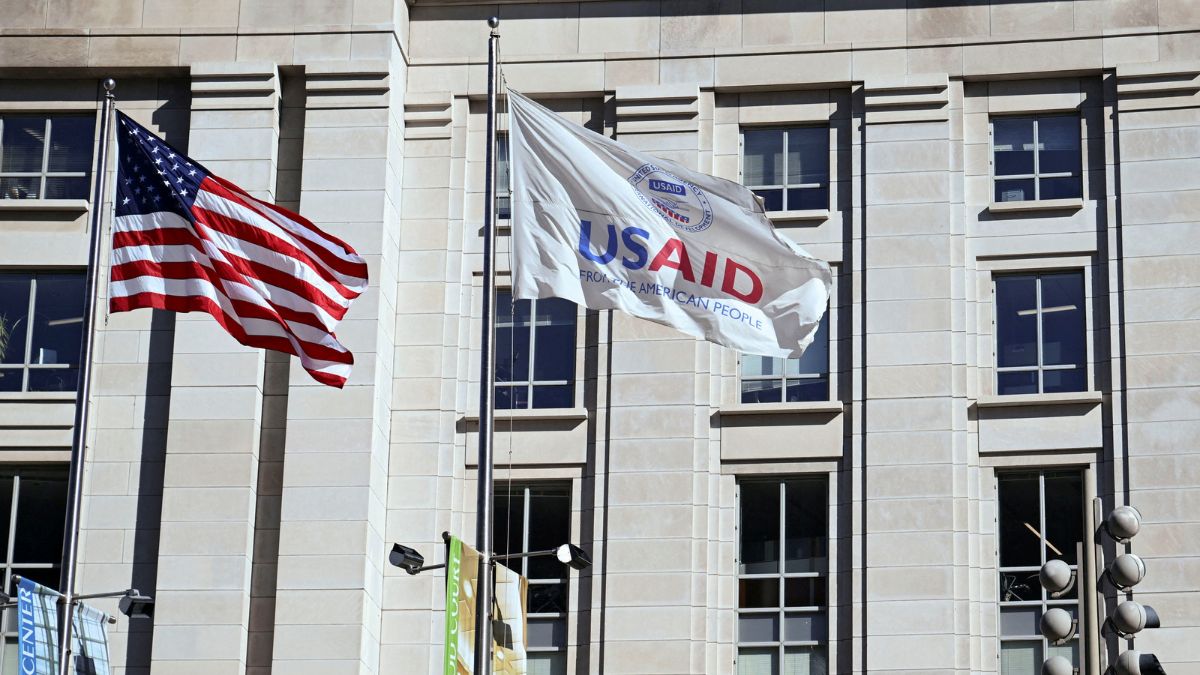The Trump administration’s move to dismantle the US Agency for International Development (USAID) and implement a sweeping freeze on foreign assistance has significantly weakened the agency’s ability to monitor and control the flow of humanitarian aid, raising concerns that taxpayer-funded assistance could end up benefiting terrorist organisations.
According to a recent report by USAID’s Office of the Inspector General (OIG), the cuts have made it difficult to track the proper use of funds, potentially allowing them to fall into the hands of extremist groups.
The OIG report notes that while USAID has historically faced challenges in preventing fraud, waste, and abuse, the latest reductions in personnel and oversight mechanisms have further degraded its ability to safeguard humanitarian funds.
“Recent widespread staffing reductions across the Agency … coupled with uncertainty about the scope of foreign assistance waivers and permissible communications with implementers, has degraded USAID’s ability to distribute and safeguard taxpayer-funded humanitarian assistance,” the report said.
US President Donald Trump and Elon Musk have justified USAID’s dismantling as a necessary step to reduce fraud and mismanagement. However, the report suggests that the move has had the opposite effect, undermining the agency’s ability to conduct oversight.
Billions in aid left unmonitored
The OIG report highlights that USAID’s Bureau for Humanitarian Assistance (BHA) has been one of the hardest-hit divisions, with more than 90 per cent of its global workforce either furloughed or placed on administrative leave.
This has effectively halted vetting processes designed to ensure that US foreign aid does not reach extremist groups such as Hamas, Hezbollah, ISIS, and the Houthis.
Countries requiring strict partner vetting, including Afghanistan, Iraq, Lebanon, Pakistan, Syria, the West Bank and Gaza, and Yemen, have seen a significant decline in oversight due to the agency’s staffing cuts.
The report states, “While USAID OIG has previously identified gaps in the scope of partner vetting, USAID staff have reported that the counter-terrorism vetting unit supporting humanitarian assistance programming has in recent days been told not to report to work … and thus cannot conduct any partner vetting.”
Additionally, third-party monitoring, which plays a crucial role in tracking aid distribution in conflict zones such as Ukraine, Afghanistan, Ethiopia, Haiti, Gaza, Iraq, Lebanon, Somalia, Syria, and Venezuela, has been suspended.
The report warns that the absence of third-party oversight poses a serious risk to the proper distribution of foreign aid, as previous monitoring mechanisms are now “largely nonoperational given these recent directives and personnel actions.”
Past USAID funding tied to terror groups
The concerns surrounding USAID’s oversight are not unfounded. Historical cases have revealed that USAID funds have, at times, been linked to terrorist activities.
One striking example involves Anwar al-Awlaki, an American-born al-Qaeda operative who was provided full funding by USAID to attend Colorado State University, reported Fox News.
Al-Awlaki, later killed in a drone strike in 2011, played a central role in radicalising individuals and had direct links to the 2009 Fort Hood shooting and the attempted bombing of a US-bound flight on Christmas Day.
Documents indicate that al-Awlaki falsely claimed Yemeni nationality to qualify for USAID funding, and the agency approved his scholarship despite his fraudulent application.
More recently, USAID has been linked to funding Pakistan-based Falah-e-Insaniat Foundation (FIF), a front for the banned terrorist group Lashkar-e-Taiba (LeT), reported India Today.
LeT was responsible for the 2008 Mumbai terror attacks that killed 166 people, including six Americans. Despite FIF being designated a terrorist organisation by the US government in 2010, USAID funds were funnelled to the group via Helping Hand for Relief and Development (HHRD), a Michigan-based charity with alleged ties to extremist groups in South Asia.
In 2019, three US lawmakers formally urged the State Department to investigate these funding links, expressing concerns that taxpayer money was being used to finance terrorist activities.
However, the funding continued, with USAID providing an additional $73,000 to HHRD in 2023 under the Biden administration, despite past concerns over its links to extremist groups.
Impact of USAID’s dismantling
While proponents argue that the move is necessary to eliminate inefficiencies and curb fraud, critics warn that reduced oversight increases the likelihood of aid misuse.
Trump’s actions align with his broader “America First” policy, which prioritises domestic concerns over foreign aid. His administration has argued that USAID funding has often been mismanaged and directed toward unworthy causes.
However, the OIG report contradicts these claims, stating that the dismantling of USAID has left billions of dollars in unspent humanitarian assistance without proper oversight.
In addition to halting aid programmes, the freeze has created uncertainty about the extent of waivers for life-saving humanitarian assistance. US Secretary of State Marco Rubio issued exemptions for critical aid , but reports from aid organisations and UN officials suggest that most programmes remain on hold.
This has affected crucial relief efforts in war-torn and disaster-stricken regions, where timely assistance is essential.
The Norwegian Refugee Council, a major humanitarian organisation, described the US aid cutoff as the most severe in its 79-year history. On Monday, it announced that the decision would force it to halt programmes assisting hundreds of thousands of people across 20 countries.
“The impact of this will be felt severely by the most vulnerable, from deeply neglected Burkina Faso, where we are the only organisation supplying clean water to the 300,000 trapped in the blockaded city of Djibo, to war-torn Sudan, where we support nearly 500 bakeries in Darfur providing daily subsidised bread to hundreds of thousands of hunger-stricken people,” the group said in a statement.
Furthermore, the staffing crisis at USAID has hindered its ability to investigate allegations of fraud and mismanagement.
“Uncertainties about the scope of the waivers, the degree of permissible communication between USAID staff and aid organisations, the sudden dismissal of contract staff, and the placement of staff on paid administrative leave has limited BHA’s ability to receive and respond to allegations of fraud, waste, abuse, or diversion of humanitarian aid,” the report states.
With inputs from agencies
)